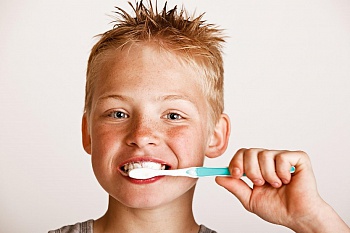13.10.2022 | Heading: Information
Personal hygiene - a set of rules for human behavior in everyday life and at work. In a narrow sense, hygiene is the hygienic maintenance of the body., clothing and household items. Violations of personal hygiene requirements can affect the health of one person, and very large groups of people (enterprise teams, families, members of various communities and even residents of entire regions).
RULES OF PERSONAL HYGIENE
1. Body hygiene. Human skin protects the entire body from all kinds of environmental influences.. Keeping your skin clean is extremely important., after all, in addition to the protective function, it performs the following functions: thermoregulatory, exchange, immune, secretory, receptor, respiratory and other functions.
- Wash daily with warm water. The water temperature should be 37-38 degrees, ie. slightly above normal body temperature. Through the skin of a person for a week, up to 300 g hall and to 7 liters of sweat. So that the protective properties of the skin are not violated, it is necessary to wash off these secretions regularly.. Otherwise, favorable conditions are created on the skin for the reproduction of pathogenic microbes., fungi and other harmful microorganisms.
- Take water treatments (bathroom, shower, bathroom) using a washcloth is necessary at least once a week.
- Keep your hands and nails clean. Exposed areas of the skin are particularly prone to contamination.. Dirt, containing disease-causing microbes can be passed from hand to mouth through food. dysentery, eg, called the disease of dirty hands. Hands should be washed before going to the toilet and always after using the toilet., before meals and after meals, after contact with animals (like street, as well as home). If you are on the road, then wipe your hands with a damp cloth, to eliminate at least some of the microbes.
- Feet should be washed every day with cool water and soap. Cold water reduces perspiration.
2. Hair hygiene. Proper care of the scalp and hair normalizes the activity of the sebaceous glands., and improves blood circulation and metabolic processes. Therefore, the hair washing procedure must be treated responsibly..
- The head must be washed as it gets dirty. It's impossible to say the exact number of times.. How often you wash your hair depends on various factors.: hair length, hair and scalp type, the nature of the work, season, etc.. in winter, usually, wash your hair more often, because the headgear does not allow the scalp to breathe, which causes more sebum to be secreted than usual.
- Do not wash your hair with hot water. Hair can become very oily, as hot water activates the sebaceous glands. Besides, this water helps detergents (soaps and shampoos) settle on the hair in the form of a gray coating, hard to wash off.
- Be careful with your hair care products (shampoos, balms, lotions, etc.). Hair absorbs water very well., and with it the substances, which can damage hair, scalp and body as a whole.
- After rinsing, it is useful to rinse the hair with cool water..
- Wipe your hair after washing preferably with a warm towel, and then let your hair air dry. It is not recommended to use a hair dryer, because it dries out the hair.
- When combing hair, it is unacceptable to use other people's combs.
3. Oral hygiene. Proper oral care helps keep your teeth in good condition for years to come., and also helps to prevent many diseases of the internal organs.
- Brush your teeth daily in the morning and evening.
- Do not use another person's toothbrush.
- Be sure to rinse your mouth after eating..
- At the first signs of tooth or gum disease, contact your dentist immediately.
- Visit the dentist at least twice a year for preventive check-ups.
4. Hygiene of underwear and clothing and footwear. An important role in personal hygiene is the cleanliness of our clothes.. Clothing protects the human body from pollution, mechanical and chemical damage, cooling, insect infestations, etc..
- Underwear must be changed after each wash., ie. everyday.
- Socks, golf courses, stockings, pantyhose change daily.
- Clothes should be washed regularly.
- It is unacceptable to wear someone else's clothes and shoes
- Clothing and footwear must be suitable for climatic conditions.
- It is advisable to give preference to clothes made from natural fabrics., and shoes made from natural materials.
- The cut of clothes and shoes should take into account the anatomical features and correspond to the size of the person..
5. Sleep hygiene.
- Each family member should have their own towel and bed.
- Bed linen needs to be changed weekly.
- The bed should be comfortable.
- Before going to bed, it is necessary to ventilate the sleeping area..
- Before going to bed, it is recommended to change underwear for a nightgown or pajamas..
- Try to keep pets out of bed.































